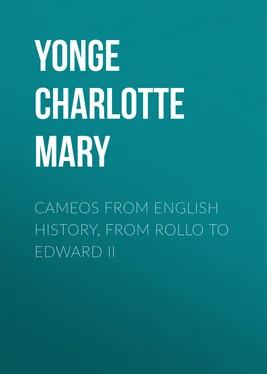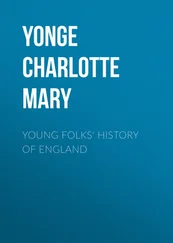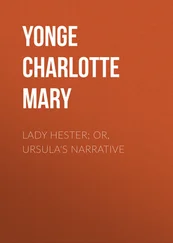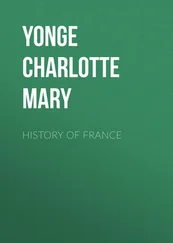Charlotte Yonge - Cameos from English History, from Rollo to Edward II
Здесь есть возможность читать онлайн «Charlotte Yonge - Cameos from English History, from Rollo to Edward II» — ознакомительный отрывок электронной книги совершенно бесплатно, а после прочтения отрывка купить полную версию. В некоторых случаях можно слушать аудио, скачать через торрент в формате fb2 и присутствует краткое содержание. Жанр: foreign_humor, Юмористические книги, literature_19, foreign_antique, на английском языке. Описание произведения, (предисловие) а так же отзывы посетителей доступны на портале библиотеки ЛибКат.
- Название:Cameos from English History, from Rollo to Edward II
- Автор:
- Жанр:
- Год:неизвестен
- ISBN:нет данных
- Рейтинг книги:4 / 5. Голосов: 1
-
Избранное:Добавить в избранное
- Отзывы:
-
Ваша оценка:
- 80
- 1
- 2
- 3
- 4
- 5
Cameos from English History, from Rollo to Edward II: краткое содержание, описание и аннотация
Предлагаем к чтению аннотацию, описание, краткое содержание или предисловие (зависит от того, что написал сам автор книги «Cameos from English History, from Rollo to Edward II»). Если вы не нашли необходимую информацию о книге — напишите в комментариях, мы постараемся отыскать её.
Cameos from English History, from Rollo to Edward II — читать онлайн ознакомительный отрывок
Ниже представлен текст книги, разбитый по страницам. Система сохранения места последней прочитанной страницы, позволяет с удобством читать онлайн бесплатно книгу «Cameos from English History, from Rollo to Edward II», без необходимости каждый раз заново искать на чём Вы остановились. Поставьте закладку, и сможете в любой момент перейти на страницу, на которой закончили чтение.
Интервал:
Закладка:
Twenty horsemen, in full armor, advanced from the Saxon army, and one of them, riding close up to the circle, called out, “Where is Earl Tostig, the son of Godwin?”
“He is here!” replied Tostig.
“Thy brother salutes thee, offers thee peace, his friendship, and the Earldom of Northumbria; nay, rather than not be friends with thee, he would give thee the third of his kingdom.”
“If he had held this language a year ago,” replied Tostig, who knew the speaker but too well, “he would have saved the lives of many men. But what will he offer my noble ally, King Harold Sigurdson?”
“Seven feet of English earth,” answered the horseman, proudly scanning the gigantic figure of the Sea-King, “or maybe a little more.”
“Then,” said Tostig, “King Harold, my brother, may prepare for battle. Never shall it be said that the son of Godwin forsook the son of Sigurd.” It must have been a strange look that passed between those two brothers, thus on the verge of a deadly strife, each surrounded with dangers that could scarcely be averted, and but of late actuated with bitter hate, but, at the decisive moment, that hatred giving way, and their hearts yearning to each other, with the memories of long-past days, yet both too proud to show how they were mutually touched, too far pledged to their separate parties to follow the impulse that would have drawn them once together in love. It was too late; the battle must be fought—the brothers’ deeds had decided their lot.
The Saxon horseman rode off, and the Norwegian King asked, who was the man who had been speaking so well.
“It was King Harold Godwinson,” said Tostig.
“Why did I not learn this sooner?” said Hardrada. “He should never have had to boast of the slaughter of our men.”
“It may have been imprudent,” said Tostig, “but he was willing to grant me peace and a great dominion. If one of us must die, I had rather he should slay me, than I slay him.”
So spoke Tostig, who had, of late, been rushing from country to country to stir up foes against his brother. Surely he would have given worlds to check the ruin he had wrought, though his sense of honor would not allow him to forsake his ally.
“He is but a little man, but he sits firmly in his stirrups,” returned Harald Hardrada; and then, to cheer his men in their desperate case, he chanted aloud one of his impromptu war-songs:
“Advance, advance,
The helmets glance;
But blue swords play
In our array.
“Advance, advance,
No hawberks glance—
But hearts are here
That know no fear.”
“These verses sound but ill,” said the Sea-King, interrupting himself; “we will make some better;” and, careful of his verses as a Skald in his last battle, as well as in his first, he sung:
“In battle morn we seek no lee,
With skulking head and bending knee,
Behind the hollow shield;
With eye and hand we guard the head,
Courage and promptness stand instead,
Of hawberk, on this field.”
It was his death-song. Early in the battle his throat was pierced by an arrow; and learning his death, Harold Godwinson sent once more to offer Tostig pardon, and leave to the Northmen to return home; but they refused quarter, and Tostig would not forsake them. The other Northmen from the ships joined them, and the fight raged with more fury than ever in the “death-ring,” as the Skalds termed it, round the banner Land-Waster. Tostig fell there, and only a few fled to their ships, protected by a brave Norseman, who stood alone to guard Stamford bridge, then only consisting of a few planks, till an Englishman crept under, thrust up his spear, and slew him from below.
However, Harold’s condition was too critical to allow of his wasting his strength on a defeated foe; he allowed Hardrada’s son to return unmolested to Norway with his fleet and the remains of his army, and he gave great offence to his men by not sharing the plunder of the camp with them.
So died the last of the Sea-Kings, by the last Anglo-Saxon victory.
CAMEO VI. THE NORMAN INVASION. (1066.)
The Duke of Normandy seems to have considered himself secure of the fair realm of England, by the well-known choice of Edward the Confessor, and was reckoning on the prospects of ruling there, where the language and habits of his race were already making great progress.
On a winter day, however, early in 1066, as William, cross-bow in hand, was hunting in the forests near Rouen, a horseman galloped up to him and gave him, in a low voice, the information that his cousin, King Edward of England, was dead, and that Earl Harold of Kent had been crowned in his stead.
With fierce rage were these tidings given, for the bearer of them was no other than Tostig, who attempted to bring the Normans against his brother, before seeking the aid of Harald Hardrada in the north.
No less was the ire of the Norman Duke excited, but he was of too stern and reserved a nature to allow his wrath to break out at once into words. Sport, however, was at an end for him; he threw down his cross-bow, and walked out of the forest, his fine but hard features bearing so dark and gloomy an expression, that no one dared to ask what had disturbed him.
Without a word, he entered the castle, and there strode up and down the hall, his hands playing with the fastenings of his cloak, until suddenly throwing himself on a bench, he drew his mantle over his face, turned it to the wall, and became lost in deep musings.
His knights stood round, silent and perplexed, till a voice was heard humming a tune at a little distance, and the person entered who, more than any other, shared the counsels of Duke William, namely, William Fitzosborn, Count de Breteuil, son of that Osborn the seneschal who had been murdered in the Duke’s chamber.
The two Williams were of the same age, had been brought up together, and Fitzosborn now enjoyed the office of seneschal, and was on a more intimate footing with his lord than any other was admitted to by the dark and reserved prince. All the knights gathered round him to ask what ailed the Duke.
“Ah!” said he, “you will soon hear news that will not please you;” and as William, roused by his voice, sat up on the bench, he continued: “Sir, why hide what troubles you? It is rumored in the town that the King of England is dead, and that Harold has broken his faith, and seized the realm.”
“You are right,” replied the Duke. “I am grieved at the death of King Edward, and at the wrong Harold has done me.”
Fitzosborn answered with such counsels as his master would best be pleased to hear. “Sir, no one should grieve over what cannot be undone, far less over what may be mended. There is no cure for King Edward’s death, but there is a remedy for Harold’s evil deeds. You have warlike vassals; he has an unjust cause. What needs there, save a good heart? for what is well begun, is half done.”
William’s wishes lay in the direction his friend pointed out, but he was wary, and weighed his means before undertaking the expedition against so powerful and wealthy a state as England. His resources seemed as nothing in comparison with those of England; his dukedom was but a petty state, himself a mere vassal; and though he had reason to hope that the English were disaffected toward Harold, yet, on the other hand, he was not confident of the support of his own vassals—wild, turbulent men, only kept in cheek by his iron rule, without much personal attachment to one so unbending and harsh, and likely to be unwilling to assist in his personal aggrandizement.
He paused and calculated, waiting so long that Tostig, in his impatience, went to Norway, and tried to find a prompter for Harold. Messages in the meantime passed between Normandy and England without effect. William claimed the performance of the oaths at Rouen, and Harold denied any obligation to him, offering to be his ally if he would renounce the throne, but otherwise defying him as an enemy.
Читать дальшеИнтервал:
Закладка:
Похожие книги на «Cameos from English History, from Rollo to Edward II»
Представляем Вашему вниманию похожие книги на «Cameos from English History, from Rollo to Edward II» списком для выбора. Мы отобрали схожую по названию и смыслу литературу в надежде предоставить читателям больше вариантов отыскать новые, интересные, ещё непрочитанные произведения.
Обсуждение, отзывы о книге «Cameos from English History, from Rollo to Edward II» и просто собственные мнения читателей. Оставьте ваши комментарии, напишите, что Вы думаете о произведении, его смысле или главных героях. Укажите что конкретно понравилось, а что нет, и почему Вы так считаете.












